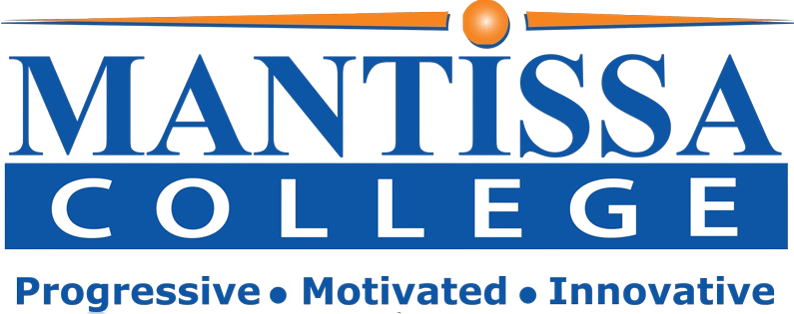
In recent years, the landscape of higher education has shifted dramatically, with Millennials (born between 1981 and 1996) leading the charge. Understanding what’s motivating Millennials in higher education is crucial for educational institutions aiming to attract and retain this dynamic and ambitious generation. This blog post explores the key motivations driving Millennials towards higher education and how institutions can cater to their needs.

The Quest for Personal and Professional Growth
1. Career Advancement and Job Security
One of the primary motivators for Millennials pursuing higher education is the desire for career advancement and job security. In an increasingly competitive job market, a higher education degree is often seen as a gateway to better job opportunities and higher earning potential. Millennials are aware that employers value advanced skills and qualifications, and they are willing to invest in their education to gain a competitive edge.
2. Passion for Lifelong Learning
Millennials have a strong passion for lifelong learning. They are curious, eager to expand their knowledge, and constantly seeking to improve themselves. This generation values education not just as a means to an end, but as an ongoing journey of personal growth and development. Higher education institutions that offer flexible learning opportunities, such as online courses and part-time programmes, are particularly attractive to Millennials.
The Importance of Social Impact and Purpose
3. Making a Difference
What’s motivating Millennials in higher education is their desire to make a positive impact on the world. They are driven by a sense of purpose and are drawn to careers that allow them to contribute to society. Higher education programmes that emphasize social responsibility, sustainability, and ethical practices resonate deeply with this generation. Educational institutions that integrate these values into their curriculum and campus culture are more likely to attract and retain Millennial students.
4. Entrepreneurial Spirit
Many Millennials possess an entrepreneurial spirit and are motivated by the prospect of creating their own businesses or leading innovative projects within existing organizations. Higher education institutions that offer robust entrepreneurship programmes, incubators, and opportunities for experiential learning are particularly appealing. These programmes provide Millennials with the skills, knowledge, and support they need to turn their entrepreneurial dreams into reality.
The Role of Technology and Innovation
5. Embracing Digital Learning
Millennials are digital natives who have grown up with technology at their fingertips. They expect their educational experiences to be technologically advanced and seamlessly integrated with digital tools. Higher education institutions that leverage technology to enhance learning experiences, such as through virtual classrooms, online resources, and interactive learning platforms, are well-positioned to meet the expectations of Millennial students.
6. Flexibility and Accessibility
The traditional model of higher education, with its rigid schedules and on-campus requirements, is evolving to meet the needs of Millennials who value flexibility and accessibility. Many Millennials balance their studies with work, family, and other commitments, making flexible learning options essential. Institutions that offer online courses, evening classes, and hybrid learning models provide the flexibility that Millennials seek, enabling them to pursue their education without sacrificing other aspects of their lives.
Financial Considerations and Value for Money
7. Financial Concerns
The cost of higher education is a significant consideration for Millennials, many of whom are burdened with student debt. This generation is highly conscious of the financial implications of their educational choices and seeks programmes that offer value for money. Scholarships, grants, and affordable tuition fees are critical factors that influence their decision-making process. Institutions that provide transparent information about costs and financial aid options are more likely to gain the trust and enrollment of Millennial students.
8. Return on Investment
Millennials are keenly aware of the need to see a tangible return on their investment in higher education. They evaluate educational programmes based on their potential to lead to well-paying jobs and successful careers. Higher education institutions that have strong connections with industry, offer career services, and boast high graduate employment rates are particularly attractive to Millennials. They want to be assured that their educational investment will pay off in the long run.
Social and Community Engagement
9. Campus Life and Community
Millennials value a vibrant campus life and a sense of community. They seek educational institutions that offer a supportive and inclusive environment where they can form meaningful connections with peers, faculty, and alumni. Extracurricular activities, clubs, and social events play a crucial role in creating a well-rounded university experience. Institutions that foster a strong sense of community and provide ample opportunities for social engagement are likely to attract and retain Millennial students.
10. Global Perspective and Diversity
Diversity and inclusivity are important values for Millennials. They are drawn to educational institutions that embrace a global perspective and promote diversity in all its forms. Programmes that offer international study opportunities, exchange programmes, and multicultural experiences are particularly appealing. Millennials want to learn in environments that reflect the diverse world they live in and prepare them for a globalized workforce.
Why the Bachelor of Business Administration (BBA) Programme at ESGCI France at Mantissa College is Ideal for Millennials
The Bachelor of Business Administration (BBA) programme at ESGCI France at Mantissa College is designed to meet the unique needs and motivations of Millennial students. Here’s why this programme stands out:
- Career-Focused Curriculum: The BBA programme offers a comprehensive curriculum that equips students with the essential skills and knowledge needed for career advancement in the business world.
- Entrepreneurial Opportunities: With a strong emphasis on entrepreneurship, the programme provides students with the tools and support needed to launch their own businesses or lead innovative projects.
- Flexible Learning Options: The BBA programme offers flexible learning options, including online and hybrid models, allowing students to balance their studies with other commitments.
- Global Perspective: Students benefit from an international education experience, with opportunities for global exposure and multicultural learning.
- Strong Industry Connections: The programme has strong ties with industry, offering students access to internships, networking opportunities, and career services that enhance their employability.
Call to Action
If you are a Millennial seeking a higher education programme that aligns with your motivations and goals, consider the Bachelor of Business Administration (BBA) programme at ESGCI France at Mantissa College. Discover how this programme can help you achieve your personal and professional aspirations.
👉 Apply now for the BBA Programme at ESGCI France at Mantissa College
In conclusion, understanding what’s motivating Millennials in higher education is key to attracting and retaining this generation. By offering programmes that align with their values, provide flexibility, and ensure a return on investment, educational institutions can successfully meet the needs of Millennial students. The Bachelor of Business Administration (BBA) programme at ESGCI France at Mantissa College is a prime example of a programme designed to cater to the aspirations of Millennial learners.

